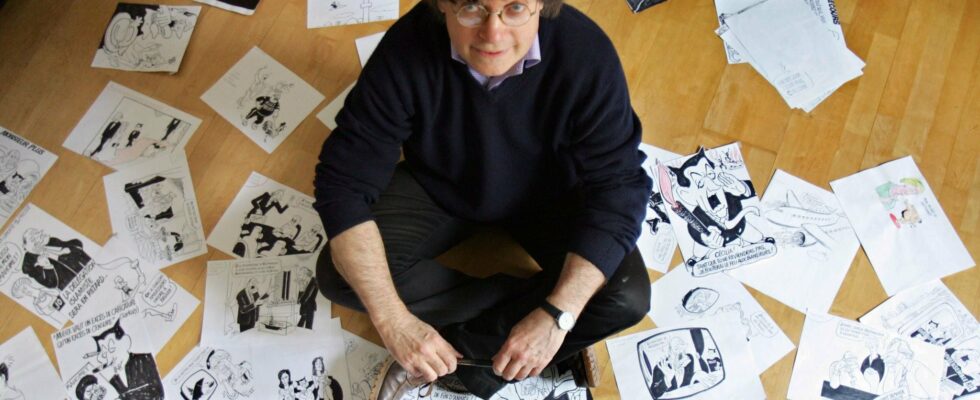Ten years since that day when, still living in the 11th arrondissement of Paris, I heard the police sirens. Invasive, harbingers of misfortune. A few minutes later, news of the tragedy broke. The massacre of the editorial staff of Charlie Hebdo by Islamists. We knew it right away, the killers shouted enthusiastically: “We have avenged the prophet.” And then I lost my voice. Literally, physically. No more sound could come out of my larynx. Breathless, voice at half mast, heart in tears. I remember my last audible sentence: “They killed Cabu”. It was like: they killed what was left of my childhood. Before being for me the caricaturist of CharlieCabu was Dorothy’s nosethe first comic book I read in French, after exile. It was the taste of Wednesday afternoons, of weekends spent reading, of the solitude of late childhood, of the refuge of reading and laughter. “They killed Cabu” and very quickly, I had the deep intuition that the Islamists were going to establish themselves in the landscape, that the initial unanimity would only be on the surface, that Islamist entryism had already posed its separatist and terrorizing claws within French society.
The Kouachi brothers were on the run, on January 8, a female municipal police officer, Clarissa Jean-Philippe, was murdered in the street, the list of deaths from Charlie Hebdo was a litany of disaster – and I still sometimes repeat these names to myself, not so as not to forget them, they are unforgettable, but as a talisman against intellectual laziness, against the fatigue of resistance. Something was in the air and we all knew it wasn’t over, it wasn’t just the Kouachi on the run, it wasn’t a premonition, but the certainty that it was an attack on the Republic and its values which ring so hollow having been repeated so much without a general awareness rising to claim them with pride. And then came the hostage-taking of the Hyper Cacher by Amedy Coulibaly. He was there to kill Jews. Journalists, cartoonists, a policewoman, Jews. You had to be blind or deaf not to see in these deadly terrorist attacks anything other than a declaration of war on France. That after the cartoonists and the Jews, no one would ever be safe again, not only physically but politically. And maybe that’s what, ten years later, we still haven’t understood. That the Islamists were opening a breach in French society into which cowardice and fear, opportunism and anti-liberalism would rush.
The Kouachis had taken refuge in a printing works in Dammartin. A printing press. There, where what is made is what will nourish souls, console sorrows, replenish knowledge. Where what Islamists hate is produced, what can contradict their dogmas, oppose diversity to obscurantism, open the doors to freedom, offer emancipation. A printing press.
There were heroes. The gendarmes, the police officers, Lassana Bathily who saved lives, informed the police, courageously prevented other Hyper Cacher hostages from being murdered. There was the march on January 11, the immense, dignified crowd, conscious of being there for the memory of the victims of Islamist barbarism, but also for the future. There was awareness and there was withdrawal. There were intellectuals, writers, politicians who sold out the Republic to its enemies, there were disparate and submissive voices who gradually coalesced into an anti-Western movement. There was the end of humanist unanimity, there was a desire for compromise, a vain fantasy of manipulating Islamism to impose itself on the public and political square. You should never negotiate with radicalism, it always wins in the end. There were still deaths, there were still resistance fighters. There will always be, every year, between January 7 and 9, a commemoration which should not be reduced to speeches, a commemoration which should be alive, to remind us that if each of us, French citizens, individually, we do not defend what allows us to live and hope, we will be condemned to relive those three fatal days of January 2015.
Abnousse Shalmani, committed against the obsession with identity, is a writer and journalist
.
